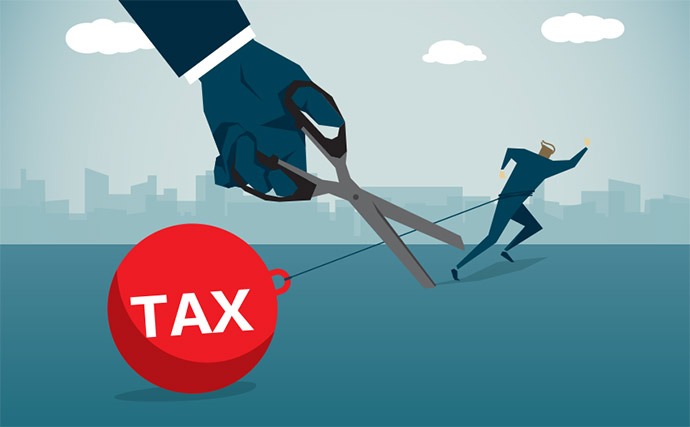
by admin | May 27, 2021 | Misc, News and Updates
Be careful what you wish for. Maybe it’s time for someone to tell that to Mayor Gallego and several other members of the Phoenix City Council.
In case you missed it, last week the council approved a civilian “oversight” office of the police in a 5-4 vote. The Office of Accountability and Transparency, which Mayor Gallego referred to as a “national best practice,” will cost taxpayers nearly $4 million.
In reality, this new office has nothing to do with “accountability” or “transparency.” If it did, then Mayor Gallego and other members of the far left would be honest that this office is nothing more than a politicized endeavor designed to undermine the police. And ultimately, they want to use it to help build momentum toward what the far left really wants: imposing progressive policies in the police department and defunding the police.
But maybe Mayor Gallego ought to check her definition of “national best practice.” Because around the country, efforts to defund the police haven’t exactly gone so well.
Cities at the forefront of the “defund the police” movement, have seen dramatic increases in crime rates and mass departures of police officers. Even CNN can’t help but acknowledge it!
Take Seattle for example. You may remember this major American city being referred to as CHAZ or CHOP during the Black Lives Matter riots last summer. Under pressure to cut police spending, the Seattle City Council redistributed nearly 20% of its police budget this past November. And what was the result? A dramatic increase in homicides and shootings so far in 2021. And this comes after a similar increase in 2020!
Maybe things are looking better in New York City, which cut $1 billion from the NYPD’s budget last June. Nope. Crime in the Big Apple is up more than 30% with shootings up 166% over last year.
But surely the outlook must be brighter in Minneapolis, which was at the center of the “defund the police” movement after George Floyd’s death. Wrong again. After cutting $8 million from the Minneapolis Police Department, the city is now bringing in outside help to address the rise in violence.
Yes. You read that right. The City of Minneapolis has asked for help from state and federal agencies, and cited its “shortage of officers.” (You can’t make this stuff up.)
Thankfully, some of these cities are starting to see the light with elected leaders in Minneapolis, New York City, and even Los Angeles seeking to increase funding to their police departments.
And yet, the push to defund the police in Phoenix remains, with just a slim majority in the city council against it.
But the Phoenix City Council better make sure to do its research before it tries to launch any more destructive anti-police programs. “Defunding the police” may have been the trend in 2020, but so far in 2021, it’s been nothing but a disaster. If Mayor Gallego and the other council members really care about their citizens, they should make reducing crime their new “best practice.” And that starts with properly funding Phoenix’s police department.
Help Protect Freedom in Arizona by Joining Our Grassroots Network
Arizona needs to have a unified voice promoting economic freedom and prosperity, and the Free Enterprise Club is committed to making that happen. But we can’t do it alone. We need YOU!
Join our FREE Grassroots Action List to stay up to date on the latest battles against big government and how YOU can help influence crucial bills at the Arizona State Legislature.

by admin | May 21, 2021 | Misc, News and Updates
Since 2019, Democrats have been pushing legislation called House Resolution 1 (HR1). And after gaining control of Congress, they passed the 800-page bill (which they probably read cover to cover) in the House this past March.
Cleverly dubbed the “For the People Act,” HR1 is currently being debated in the Senate. And while it claims to do things that sound good on paper—like “expand voting rights”—make no mistake. The only group of people who stand to benefit from this dangerous bill is Democrats.
HR 1 is nothing more than a power grab. And this so-called “election reform” would not only nationalize our elections, but it would significantly undermine the First Amendment.
A federal takeover of elections
With distrust in the U.S. election system continuing to plague our country, multiple states—including Arizona—have sought to pass reasonable laws that protect our election process.
But if HR1 becomes federal law, it would undo many of the commonsense election integrity laws our state has worked to adopt. That’s because control of our elections would now reside in Washington, D.C. And the federal government would have the power to “micromanage” state election processes.
This means that Arizona’s ban on ballot harvesting would disappear. And our state would be required to allow paid partisan operatives to collect and deliver ballots for voters.
But there’s more.
HR1 would override Arizona’s voter ID requirements for in-person voting, and if passed, the provisions of SB1713 requiring ID on mail-in ballots. It would also undo measures Arizona has in place to ensure only qualified electors are registered to vote by requiring automatic and same-day voter registration. And if you were thrilled (as we were) with the passage of SB1485, which removes inactive voters from the Early Voter List, HR1 would crush that law and instead require all applicants for an early ballot to be sent a mail-in ballot in all future elections.
But the “For the [Democrats] Act” isn’t just about elections. The left wants to use it for something far more sinister.
HR1 would help dismantle the First Amendment
Among the many items within the bill, HR1 would require political groups to disclose donors who give $10,000 or more and create reporting requirements for online political ads. And even though the American Civil Liberties Union shared its concerns about this, Democrats don’t care.
They want to target conservatives. They want to dox them. And they want to harass anyone who doesn’t believe what they want them to believe or say what they want them to say. Just ask Brendan Eich, former CEO of Mozilla and inventor of Javascript, what happens when you donate to a cause the left doesn’t like. Brendan was canceled before “cancel culture” was a thing. But now, Google, Facebook, and Twitter have embraced their role as speech police. And they’re willing to ban anyone, including the sitting President of the United States.
Stand Against HR1 Today!
Thankfully, you can stand against HR1 today. Please contact Arizona Senators Kyrsten Sinema and Mark Kelly right now and tell them to vote NO on HR1. We do not need a federal takeover of our elections. HR1 would undo all the good election reform bills that have been passed in Arizona and signed by Governor Ducey. And it would put good people at risk of being doxed and harassed. We can’t let that happen.
Send a message instantly to Senators Sinema and Kelly using the button below. And tell them to vote NO on HR 1. (The process is simple and secure. And it will only take a minute of your time.)

by admin | May 19, 2021 | Misc, News and Updates
If given the option between working full time or doing nothing but receiving the same or greater pay, which would you choose? Most people would choose the latter. And can you blame them? Why wake up early and work all day if the government will pay you to stay home and do nothing instead?
This is the current workforce environment in America, and it is having a detrimental impact on our economic recovery. The result? While the Biden administration was hoping to tout a million new jobs for the month of April, they ended with a paltry 266,000.
And we have seen this lag in job recovery all across the country. Restaurants have posted signs apologizing to customers for delays in service, noting that their employees refuse to come back to work. And some businesses have started offering cash simply for coming in for an interview.
Never let a crisis go to waste, right? Under the guise of a global pandemic, politicians shut down the economy, and then created a citizenry dependent on unemployment checks exceeding the wish list $15 minimum wage pushed by the likes of Bernie Sanders. How is a business, coming out of potentially months with no profit, supposed to compete with that?
It is completely unsustainable. States can’t afford it. The feds can’t afford it. And most importantly, small businesses can’t shoulder it any longer.
Fortunately, some states have moved in the right direction. South Carolina announced they will be ending the $300 federal unemployment supplemental payments. This comes after Montana announced the same, along with $1,200 stipends to Montanans who return to work.
Even better, South Dakota was one of the only states that entirely opted out of many federal unemployment benefits from the get-go and has now announced that they too will be ending the $300 supplemental checks.
In Arizona, Governor Ducey has joined in with these other states, announcing that he will end the federal $300 supplemental payments in July. Additionally, the Governor announced he will be using $300 million in federal covid cash for $2,000 return-to-work bonuses.
The move by Governor Ducey and other states around the country showcase that these expanded unemployment benefits have disincentivized work and put small business on the hook to foot the bill.
Yet contrary to this overwhelming evidence, some Republican lawmakers are still looking to permanently expand benefits. Why they would be wanting to double down on Biden’s failed economic policies make zero sense.
Arizona should be encouraging a return to work, not having taxpayers’ foot the bill to incentivize unemployment. Just as Governor Ducey quoted Ronald Reagan in his announcement “the best social program is a job.” We are no longer in the pandemic. We are back open, and any move on unemployment must be consistent with that.
Help Protect Freedom in Arizona by Joining Our Grassroots Network
Arizona needs to have a unified voice promoting economic freedom and prosperity, and the Free Enterprise Club is committed to making that happen. But we can’t do it alone. We need YOU!
Join our FREE Grassroots Action List to stay up to date on the latest battles against big government and how YOU can help influence crucial bills at the Arizona State Legislature.

by admin | May 14, 2021 | Free Market, News and Updates
Unions are in decline in America, and it’s no surprise as to why. Most do not offer any sort of value to the overwhelming majority of workers.
You would think they could take a hint. In 2017, workers at Nissan in Mississippi and Boeing in South Carolina rejected union representation by a wide margin. In 2019, Volkswagen employees in Tennessee voted against unionizing for the second time in recent years. And just last month, employees at an Amazon facility in Alabama largely rejected joining the Retail, Wholesale, and Department Store Union.
So, what solution has labor unions come up with? Will they focus on bringing more value to members or potential members? Will their leadership stop supporting liberal and other far-left causes? Will they stop pushing socialist policies and politicians?
Nope. Their solution is to force American workers to join unions through legislation.
H.R. 842, also known as the Protecting the Right to Organize (PRO) Act, would enact sweeping changes to the National Labor Relations Act. And it’s dangerous in 3 particular ways.
- The PRO Act repeals all state right-to-work laws.
Currently, 27 states have right-to-work laws, including Arizona. These laws ensure workers can choose whether or not to join a union and pay for representation. The PRO Act would remove these laws, which could cause some workers to lose more of their wages and others to lose their jobs.
- The PRO Act ends the secret ballot for unionization votes.
Secret ballots protect workers from being intimidated into joining a union. And in Arizona, we put a right to secret ballot in our state constitution more than ten years ago. But now, the PRO Act puts that in jeopardy, opening up workers to threats, misrepresentation, and other false promises from unions.
- The PRO Act makes independent contracting nearly impossible.
When you’re thinking about state laws to mimic, California is probably not a state that comes to mind. And yet, the PRO Act would take California’s disastrous Assembly Bill 5 (AB5) nationwide. This so-called “Pro-Worker Law” has already killed jobs left and right in California. And now, it threatens freelancers across the country who want flexibility and like being their own boss.
Clearly, the PRO Act is nothing more than a giveaway by congressional Democrats to union bosses to help them boost their declining membership rolls. So, it’s no surprise that the Democrat-controlled House already passed the bill back in March. And President Biden, the most pro-union president ever, is itching to sign it.
But right now, its fate rests in the Senate. And a coalition of liberal organizations and unions are spending big money around the country, especially here in Arizona, to make sure it’s passed. They know that Arizona Senators Kyrsten Sinema and Mark Kelly likely hold the key to making that a reality. After all, they are among only three Democrats who did not co-sponsor the bill.
That’s why it’s critical for you to take action today! Contact Senator Sinema and Senator Kelly right now and tell them to vote NO on the dangerous PRO Act (H.R. 842). The future of workers rights and our economy could depend on it.
Take Action
Tell Senators Sinema and Kelly to vote NO on the Dangerous PRO Act (H.R. 842) and save our Economy!

by admin | May 11, 2021 | News and Updates, Tax
When government enjoys a surplus, three options are available. They can either spend it, save it, or return it to taxpayers. Arizona has already checked off the first two options—increasing spending and amounting a billion-dollar rainy day fund. With a staggering surplus totaling $6.5 billion by FY2024, the answer this year must be returning money to taxpayers.
Though many factors have contributed to this record high state surplus, one huge contributor is undoubtedly new taxes Arizonans have shouldered over the past several years.
In 2018, the legislature handed taxing authority over to the Director of Transportation. Originally sold as a new $18 “Highway Safety Fee” to fund DPS, when implemented the fee was levied at $32 per registration—an annual $185 million tax hike. And the funds weren’t even used for public safety as promised—they were swept into the general fund and used to pay for other projects.
A groundswell of angry Arizona taxpayers bombarded the legislature with phone calls and emails, and many supporters of the fee quickly became vocal opponents. The fee was repealed by the Legislature a year later, but not until over $500 million will be paid by vehicle owners before its final phase-out this summer.
And in 2019, following the Wayfair Supreme Court decision, Arizona enacted legislation allowing for the collection of TPT from remote sellers and marketplace facilitators. Initially scored as an ongoing $85 million increase in revenue, collections from Wayfair have brought in over $425 million in state and local collections so far in FY2021 according to research provided by the Arizona Tax Research Association. That’s nearly a half billion dollars in taxes Arizonans previously were not paying on their online purchases.
Additionally in 2019, in an honest effort to offset increased revenues from conforming to the federal tax code, the Legislature made cuts to individual income tax rates. However, the estimate used to determine these cuts ended up being far too small, and Arizona taxpayers shouldered a $100-200 million income tax increase as a result.
But all of this wasn’t enough. On a slim margin in 2020, voters approved Prop 208 which is set to propel Arizona into the 9th highest income tax rate in the nation and 2nd only to California when looking at western states. This is nearly a billion-dollar tax hike, a third of which is carried on the backs of small businesses.
With the exception of Prop 208, which will push small businesses and new investments away from Arizona potentially decreasing state and local revenue, the other tax increases have been to the benefit of the state general fund and a windfall for cities.
Yet as if these windfalls and a growing economy weren’t enough, cities raised taxes on their residents too. In 2017, Payson increased their TPT rate from 2.12% to 3%. In 2017, Tucson raised its TPT rate from 2% to 2.5% followed a year later by another increase to 2.6%. In 2019, Flagstaff raised its TPT from 2% to 2.281%. Between property taxes and TPT, the same story can be seen across the state.
When cities have been faced with increased revenue on the backs of taxpayers, their response has been to increase spending and increase taxes. All the while sitting comfortably on cumulative General Fund balances exceeding $1.8 billion.
Any “loss” in revenue cities see as a result of tax cuts being discussed in the Legislature must be in context to the billions in new taxes, tax increases, and fees that have been footed by taxpayers for years and resulted in windfall after windfall for cities. The time to act is now, and Arizona taxpayers deserve to have their money returned.
Help Protect Freedom in Arizona by Joining Our Grassroots Network
Arizona needs to have a unified voice promoting economic freedom and prosperity, and the Free Enterprise Club is committed to making that happen. But we can’t do it alone. We need YOU!
Join our FREE Grassroots Action List to stay up to date on the latest battles against big government and how YOU can help influence crucial bills at the Arizona State Legislature.






Recent Comments